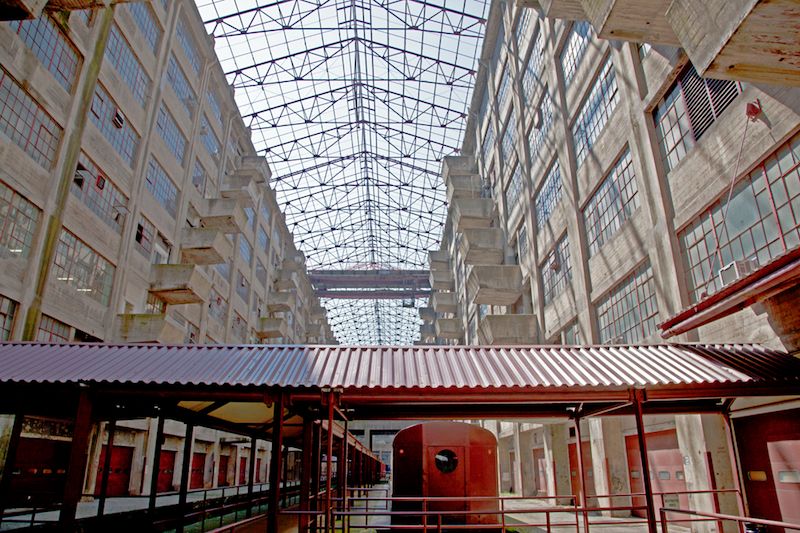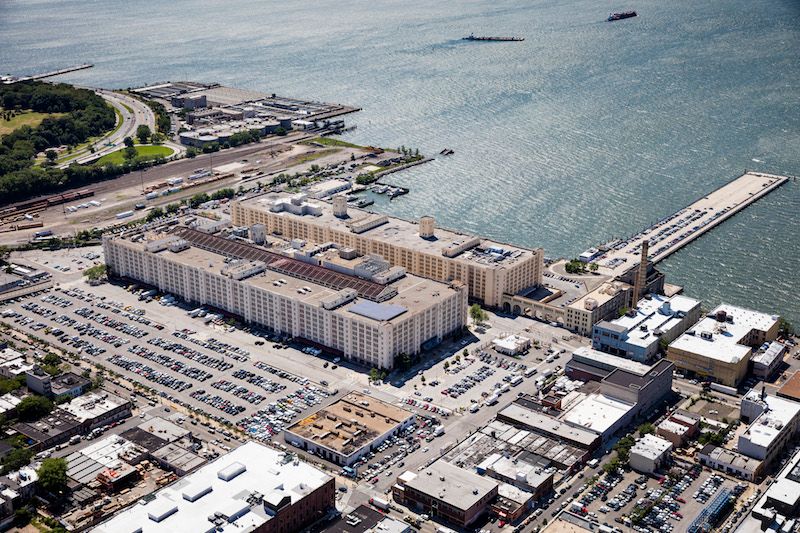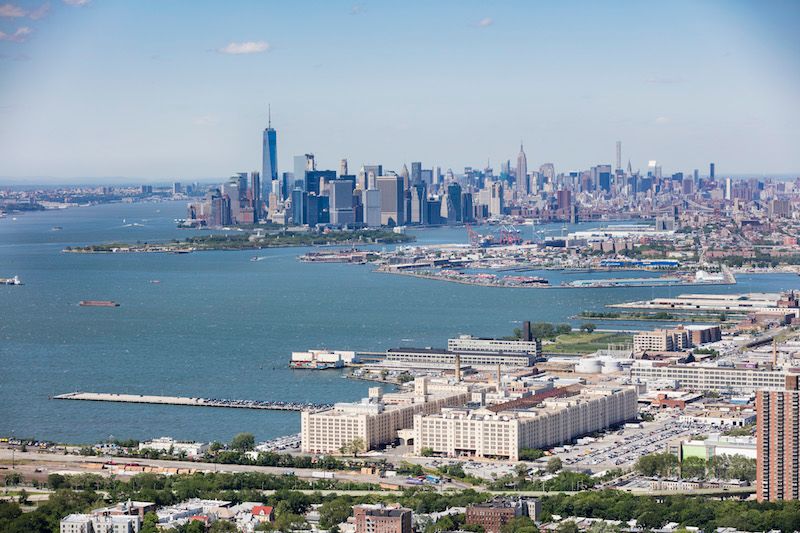


All images courtesy NYCEDC
The Brooklyn Army Terminal (BAT) — formerly the U.S.’s largest military supply base — is immersed in business of innovation. The expansive commercial and industrial space in Sunset Park has gotten a serious facelift since its World War I design, and the improvements just keep on coming.
Earlier this week, the New York City Economic Development Corporation (NYCEDC), which manages the 3 million-square-foot complex, announced the launch of the Brooklyn Army Terminal’s brand-new Micromanufacturing Hub: a place where growth-stage firms can lease space and cultivate internal expansion.
Along with this announcement comes four new tenants to the BAT’s already bustling fleet of manufacturers. Among these fresh faces are Green Mustache, Pour Steady, Mudo Fashion and Rvinyl.
Rvinyl, a company that designs, produces and sells vinyl vehicle wraps, dash kits and tints for windows and taillights, signed onto the largest amount of manufacturing space at 5,400 square feet.
Mudo Fashion, a garment firm that sews, cuts, fuses and prints labels onto clothing will occupy 4,100, while Green Mustache, a local, woman-owned smoothie and snack maker, and Pour Steady, maker of commercial coffee equipment, have 1,600 and 2,800 square feet, respectively.
Although each company varies in size and target consumer, all four will produce their goods from within the same Micromanufacturing Hub, specifically designed with ideas of collaboration and growth in mind.

According to the NYCEDC, BAT will host speaker series, business to business networking, tenant engagement events and happy hours in order to facilitate this chain of support among manufacturers within the campus.
Given the sheer size of Brooklyn Army Terminal, NYCEDC also encourages its manufacturers to seek internal expansion. A manufacturing company that starts with a 1,500 square feet lease has the capacity to grow into an operation of 100,000+ square feet without having to relocate due to BAT’s available space.
Julie Stein, executive director for NYEDC in Sunset Park said in a statement that, “We’re creating critical space and support for companies who want to manufacture and grow their business in New York City.”
The corporate mentality behind Micromanufacturing Hub’s creation certainly matches the momentum found in Brooklyn, a poster child for current New York City modernization.

Mayor Bill de Blasio recognized Brooklyn Army Terminal’s contemporary potential back in 2014 and committed $100 million in renovations to “transform the neglected building into a hub for technology and modern manufacturing.”
Since its 1964 decommission, the Brooklyn Army Terminal has gone from periods of desolation to redesign. And in 2018, the space seeks to continue an upward trend of innovation and shared creation. The Micromanufacturing Hub is only one example.
Next, check out the 10 Fun Facts about Brooklyn Army Terminal and learn about the Micro Cities of NYC.

